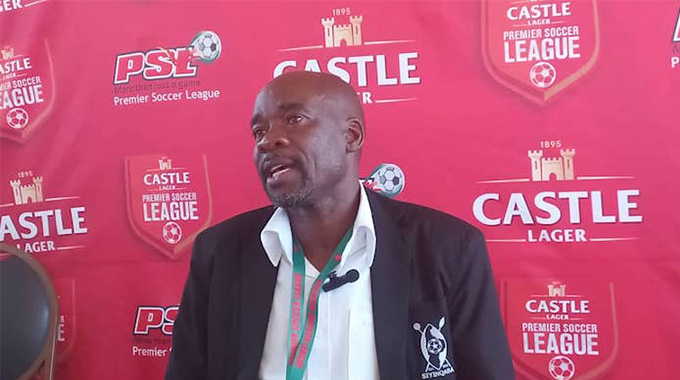A lost soul away from Pfupajena Stadium

Innocent Kurira, [email protected]
FUELLED by the extraordinary enthusiasm of the supporters and the local community, Chegutu Pirates would have presented a formidable challenge for any team at Pfupajena Stadium.
Unfortunately, the stadium does not meet the standards required for Premier League matches. Consequently, the team must undertake a 46,5 km journey to Ngezi to host their home fixtures at Baobab Stadium.
Considering the club’s impressive sale of 7 000 tickets for a single Division One match in the previous season, one can only speculate about the electric atmosphere that would have prevailed in Chegutu if Pfupajena had been their home ground for league encounters.
Coach Day Gutu of Chegutu Pirates concedes that the essence of their home advantage is diminished, as their “home” games are played on foreign turf.
“It’s a great disadvantage ranging from several factors like missing the twelfth player, losing time for training traveling to Ngezi, traveling on its own is a load which brings fatigue and as a team, we don’t enjoy the home advantage for we will be playing home away from home,” said Gutu.
Coach Gutu witnessed his team, the Chegutu Pirates, suffer a 3-0 defeat to the Highlanders at Barbourfields Stadium last Sunday. Reflecting on the match, he highlighted the daunting atmosphere as a significant factor — an atmosphere he believes could be replicated to their advantage if they had the opportunity to play in Chegutu.
“The atmosphere was electric and intimidating,” said Gutu on Barbourfields Stadium atmosphere.
He says the support they get at Pfupajena is similar to that Bosso gets at Barbourfields.
“Our fans are similar in several things like being passionate about their team, cheering their team regardless of the result, help their team unconditionally, they follow their team wherever it goes, they don’t despair, always rally behind their team,” said Gutu.
In the heyday of the local Premiership, it was a spectacle that even smaller towns boasted teams robust enough to vie with urban giants.
These squads were an amalgam of corporate-backed and community-driven clubs, known for their challenging home grounds that often turned the tide of matches. Notable among these were teams like Baghdad from Kwekwe, Mhangura, Maglas, Chibuku and Motor Action Sports Club, which have since lost the privilege to host Premiership football.
Motor Action clinched the 2010 championship at their home ground, Motor Action Sports Club (once known as Callies), while Arcadia United became a formidable presence at Danny Bismarck. As the new millennium dawned, teams like Lengthens brought elite football to Dzivarasekwa and Circle United played at their Mabvuku base. Buymore took to the field at Chibuku in Chitungwiza and Premier League clubs traversed Zimbabwe to compete in locales such as Dulibadzimu in Beitbridge, Trojan Mine ground, and Hwange’s Colliery, each with its storied football heritage.
The majority of these venues are under the stewardship of local authorities, which, due to neglect, have collapsed. In times past, corporate entities embraced their social responsibility by fostering sports, leading to a flourishing football scene across the nation.
Bulawayo was a hub of such activity, with numerous teams engaging in fierce competition beyond the top league. Squads like Archer Stars, Merlin Husky, Red Seal Rovers, and Gold Star left an indelible mark as they vied for supremacy in the first division.
The intensity of lower-league play was such that players often leaped from second-tier teams to Premiership stardom, securing starting roles immediately. Examples abound, including Sikhumbuzo Mabhena’s transition from Makasa Sun to Hwange and Chipo Tsodzo’s leap from G & D to Zimbabwe Saints.
The lower divisions and area zones provided a nurturing ground for late bloomers, offering a platform for maturation beyond junior football. It wasn’t unusual for a Highlanders reserve to sharpen their skills with Matabeleland High City in the BAFA league before ascending to the Premiership.
Lloyd Mutasa, a legendary midfielder, embarked on his illustrious career at Tanganda FC in Manicaland, backed by the Tanganda Tea Company. Similarly, the late Francis Shonhayi rose to prominence with Bata Power, sponsored by the Bata Shoe Company in Gweru, igniting a local rivalry with Gweru United.
Such rivalries were mirrored in larger cities, with Highlanders and Zimbabwe Saints in Bulawayo, and Dynamos and Caps United in Harare, each commanding a legion of passionate supporters.
Mining town teams like Mhangura, Hwange and Ziscosteel have been woven into the fabric of Zimbabwean football folklore since before Independence.—@innocentskizoe











Comments